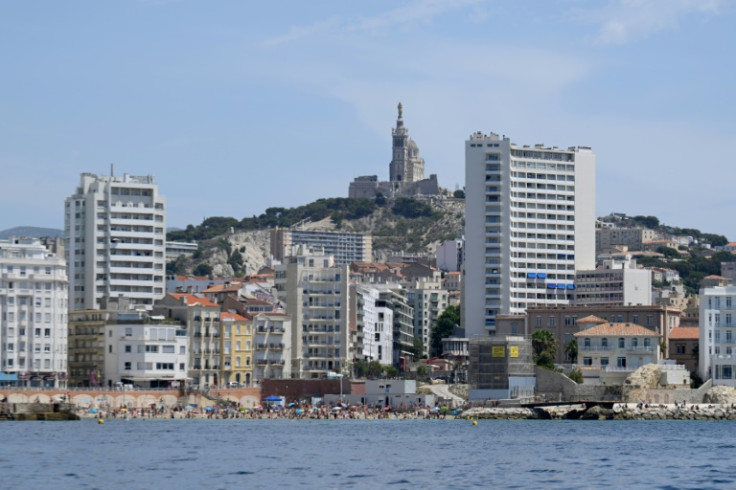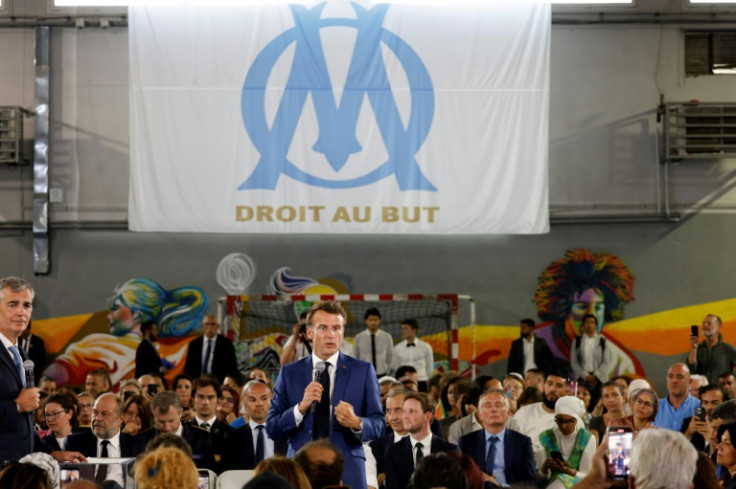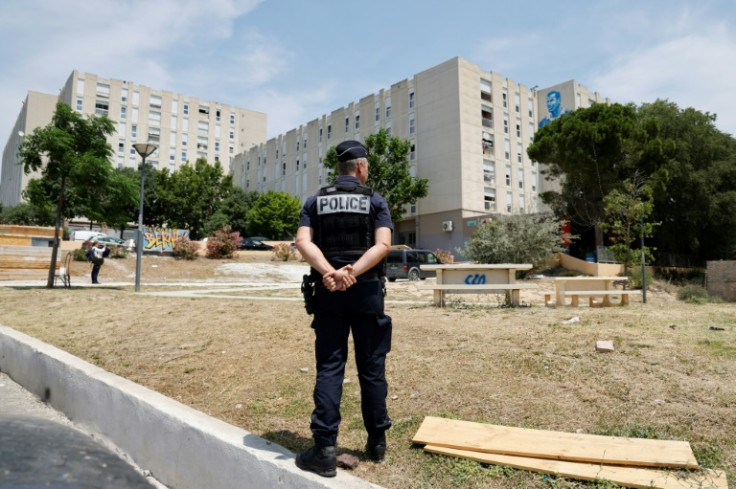Drug War 'Bloodbath' Shakes Marseille As Rival Gangs Shoot It Out

A bloody rivalry between two drug gangs in Marseille on France's Mediterranean coast has claimed the lives of dozens of people this year, targeted in brazen attacks sometimes carried out by teenagers, according to police.
The two gangs, "Yoda" and "DZ Mafia" are vying for control of the drug market in the notorious northern neighbourhoods of France's second biggest city.
Since the start of the year, 36 people have died in the gang war, according to an AFP count, already five more than in all of 2022.
"It's a bloodbath," the city's state prosecutor Dominique Laurens said back in April.
Since then there has been another surge in murders, with 12 people killed over the past month alone.
The latest target was a 30-year-old man gunned down with a Kalashnikov assault rifle in northern Marseille Tuesday night.
"This is nothing less than a new round in the fight between Yoda and DZ Mafia," police prefect Frederique Camilleri told reporters Wednesday.
The two gangs were behind 80 percent of the total of 68 gang-related killings or attempted killings in Marseille this year, she added.
Some of the victims and perpetrators are teenagers, like a 17-year-old beaten to death by 30 attackers in the Marseille high-rise project known as La Paternelle. The killing was live-streamed on Snapchat, a messaging app.
Camilleri said while murders linked to the drug trade used to be about the expansion of territory -- such as the takeover of a dealing spot -- they were now mostly about striking terror in their rivals.
"We're seeing a new landscape, a paradigm change," she said.
Drug gang members now "kill to scare", which she said was like a "vendetta", a blood feud motivated by vengeance.
And the killers were now both younger and less professional than in the past, she added.
Whereas gangs used to employ skilled specialists for the hits "the recruitment of killers has become commonplace", she said, "no different from hiring a lookout".
In early April police arrested an 18-year-old, identified only as Matteo F., suspected of gunning down Djibril, 15, and Kais, 16.
Matteo told police that he had collected a total of 200,000 euros ($218,000) in payment for contract killings.
There appears to be no shortage of candidates, despite police arresting 17 presumed members of five hit squads since the spring.
"It used to be that police got six months of calm after they arrested a team of killers, but that's over," Camilleri said.
The increase in gang-related murders comes, somewhat paradoxically, at a time when police are reporting greater success in their fight against the drugs trade.
They have seized 740 weapons, including 62 assault rifles, since the start of the year, an increase of 24 percent over 2022.
In addition, they have arrested 1,144 drug dealers in Marseille, up 26 percent, cut the number of deal spots by 70 since 2021, and seized 12 million euros in criminal assets.
The arrest in June of Mohamed Djeha, nicknamed "Mimo", in Algeria removed one of France's biggest suspected drug dealers from the scene.
Camilleri said police were following the money to get their hands on the masterminds of the drugs trade.
"We try to hit their wallets by taking out the dealing spots which are the cash cows of the networks, but also by targeting money collectors and money laundering networks," she said.
Interior Minister Gerald Darmanin has said he will dispatch the CRS 8 police unit, which specialises in urban violence situations, in the coming days.
He said on Thursday the unit would hit the local networks as hard as possible for a week, especially their dealing spots.
On a visit to Marseille in June, President Emmanuel Macron announced measures against schooling inequality in Marseille -- which he said made recruiting youths in the city easier for the drug gangs -- and against poverty in its run-down neighbourhoods.
"We are hostages here," one Marseille resident told the president during the visit. "We're afraid to go out at night, everybody wants to leave," she added.
Marseille has a long history of large-scale drug trafficking.
Starting in the 1930s, the city was a major hub in the "French Connection", for decades the world's biggest heroin producing and smuggling network.
Run by mafia groups of Corsican background, the French Connection brought morphine extracted from poppy plants in the Near East, Middle East and Asia to Marseille where its labs transformed it into heroin for export mostly to the United States.
That network, made famous by William Friedkin's eponymous 1971 movie starring Gene Hackman, was only dismantled later in the 1970s.



© Copyright AFP 2024. All rights reserved.





















